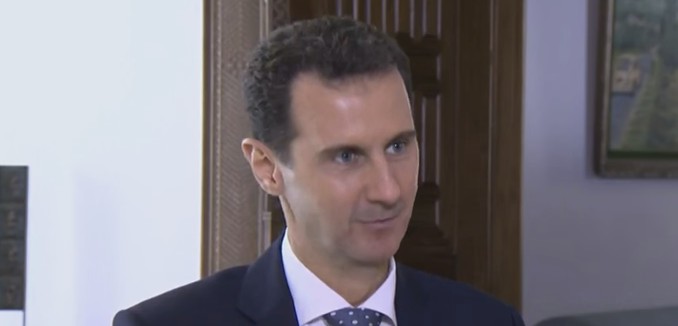If Bashar al-Assad and senior members of the Syrian leadership are ever captured and brought to the International Criminal Court (ICC) and charged with war crimes, the evidence being gathered by an obscure investigative agency could be crucial to establishing their guilt.
In the newest issue of The New Yorker, Ben Taub documented the efforts of the Commission for International Justice and Accountability (CIJA) to establish the culpability of high-ranking Syrian officials.
CIJA was founded by Bill Wiley, a Canadian who had been retained by the ICC to be its first war crimes investigator in Rwanda and the Congo. But Wiley became disillusioned with the ICC’s ineffectiveness, and went to Iraq in 2005 as a United Nations human rights monitor.
After leaving Iraq, Wiley opened a consultancy whose goal was to prevent war crimes in troubled parts of the world by teaching security forces how to operate within the bounds of international law. He was recruited in November 2011 to teach Syrian activists how to collect evidence to establish culpability for war crimes. He had to teach the activists that there was more to establishing guilt than simply recording attacks on video.
Taub explained what Wiley and his colleagues taught the activists:
Several of the activists attending the training session in Istanbul lived in besieged areas; Wiley and his colleagues taught them to photograph and measure artillery craters, assess angles of impact, collect shell fragments, identify the types of weapon used, and calculate launching points. But, he said, “the big thing we wanted them to focus on was documentation generated by the regime,” which he called “the king or queen of evidence in international criminal proceedings.”
After discussing the unlikelihood of a United Nations prosecution for war crimes in Syria, Wiley proposed to then-U.S. Ambassador-at-Large for War Crimes Issues Steven Rapp that a repository for documentation that could eventually be used in prosecutions should be established. With Rapp’s help, Wiley was able to secure funding from the European Union. Britain, Germany, Canada, Switzerland, Norway, and Denmark have pledged funding to support CIJA. The group’s headquarters, Taub wrote, is “in a nondescript office building in Western Europe.”
Not all of the documentation tying Assad and his government to the atrocities came from the trained activists. Abdelmajid Barakat was a paperwork processor for Central Crisis Management Cell, the Syrian regime office created to deal with the rebellion. While Barakat did not have access to its meetings, he summarized reports of dissent to give to the Crisis Cell, and had access to the minutes of all of its meetings. He knew that all recommendations from the Crisis Cell were forwarded to Assad for implementation. Barakat secretly photographed documents showing that the regime was targeting protesters and forwarded them to opposition forces.
Barakat was questioned about the leaks in 2012. Realizing that he was in danger, he escaped to Turkey with a thousand documents taped to his body, managing to steal minutes of the Crisis Cell meetings as well as personal correspondence from the Crisis Cell, the office of the President, Prime Minister, and Minister of the Interior. A month later, after his mother was safely out of Syria, Barakat told Al Jazeera that he planned to give his documents to the ICC. When CIJA investigators came to him, Barakat gave them photographs of the documents he had smuggled out and promised them the originals if any cases went to trial.
CIJA is also seeking testimony from former regime officials who have defected and can explain their roles in suppressing the rebellion. The officials are generally lower level than those being sought for prosecution.
The documentation and testimony being gathered by CIJA has been supplemented by photographs of the regime’s thousands of torture and murder victims, taken by the former regime photographer known as Caesar.
Rapp told Taub that given the comprehensiveness of the documentation being compiled, if Assad and his confederates are ever brought to trial, “we’ll have much better evidence than we’ve had anywhere since Nuremberg.”
The United Nations formally accused Assad in February of carrying out the “extermination” of prisoners. The U.S. House of Representatives overwhelmingly approved a resolution last month calling for a tribunal to prosecute Assad and his allies, including Russia, Iran and Hezbollah.
[Photo: R&U Videos II / YouTube ]




